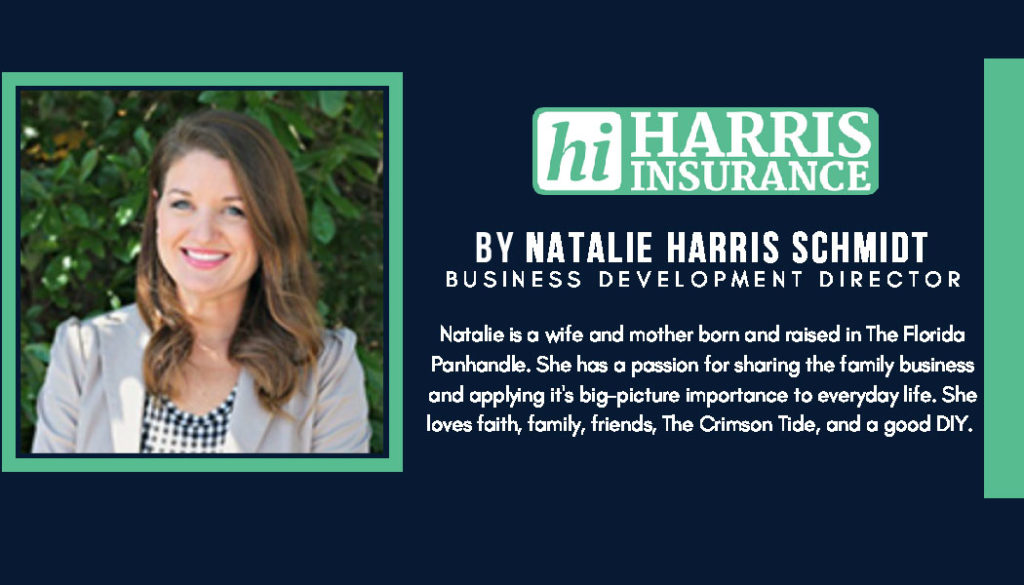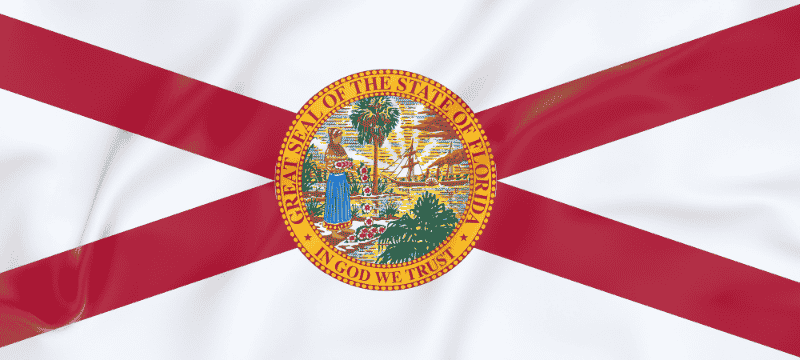We typically try to focus our June communications in preparing for Hurricane Season, but this year there simply hasn’t been time. This year we have been dealing with a different type “storm” in the Florida Insurance Marketplace and it’s been building over the last 3-5 years. Florida homeowners are now all too familiar with the financial stability, fraud, and perfect storm that has now formed into a full-blown crisis.
Hurricane Alley
It’s not surprising that Florida sees 40% of hurricanes that make landfall in the US. Just looking at the last few years, our Capitol was clobbered by Hurricane Hermine followed almost immediately by Hurricane Matthew. The very next year, Irma barreled into the Florida Keys and continued up the middle of the state resulting in being the most expensive storm Florida has seen yet ($32.2 Billion). Residents of the Panhandle are still recovering from the broad brunt of Hurricane Michael, the Category 5 Hurricane that devastated Mexico Beach, Panama City Beach, and Tyndall Air Force Base. And in 2020, Hurricane Sally made landfall as a Category 2 but camped out for almost a full week causing $7.3 Billion in flood and water damages. Hurricanes weren’t the only contributor of the damage, either. There were many other Tropical Storms that brought heavy rains and damaging winds that other states experience far less frequently.
But Hurricanes and Tropical Storms are just part of the price of living in Paradise. Frankly, they’re to be expected and we need to be prepared for them. It’s no secret that more and more of the US Population is either retiring to Florida or building and buying vacation homes so they can carve out their own piece of paradise in this beautiful State. The growth and development is unprecedented and another contributing factor to the ever-increasing scope of damage these events cause.
Even with these exposures and the ever-expanding population growth, we know that everything goes up over time. If it was just these somewhat measurable “risk vs exposure scenario’s”, the trajectory of rate increases just does not add up for Florida policy holders. Not a day goes by that we do not hear the phrase “my rate went up and I’ve haven’t had a claim.”
At Harris Insurance, we feel your pain of continued rate increases without claim justification. We sincerely feel for our policyholders who have had an abnormal rate increase compared to typical market conditions on a year over year basis. As a result, we have continued to maintain our position of providing renewal evaluations to always maintain the best rates and coverages for your homes & properties.
Storms and roof replacement claims are a real problem, but they really are only masking the underlying issues at the root of the crisis we find ourselves in the midst of today.
For every person that hasn’t filed a claim, someone else has.
Insurance is designed to help policy holders when they’re faced with a sudden and accidental problem. It is not meant to help you make upgrades or perform maintenance due to normal wear and tear. While the claims process is not perfect, people don’t always understand how an insurance policy works and if something isn’t covered or a claim is denied. And what happens then? In many cases, the answer to that question is: “See you in court.”
This occurs more often in Florida than all other 49 States combined.
According the National Association of Insurance Commissioners (NAIC) data mined by the Florida Office of Insurance Regulation, while Florida homeowners insurance claims accounted for just over 9% of all homeowner’s claims opened by U.S. insurers in 2019, homeowners insurance lawsuits in Florida accounted for more than 79% of all litigation against insurers nationwide. ABC News
The most common Florida fraud scheme: replacing “wind-damaged” or “hail-damaged” roofs when reports show only normal wear and tear is present. You might have even seen roof replacements being advertised as “free.”

The “not-so-free” roof scheme that has been occurring across Florida, specifically in areas like Orlando, are significantly driving up litigation. In Florida we have a one-way attorney fee statute with a fee multiplier. This means that if a homeowner files a claim for wear and tear on roof that was never designed to be covered in a policy and the carrier denies the claim, the roofer refers the homeowner to an attorney. The attorney files a lawsuit against the insurance carrier. If the insurance carrier wins at the lawsuit (which they typically do) the company is still required to pay the attorney’s fees without recourse.
If the insurance carrier loses even part of the lawsuit, the carrier is required to pay all their legal along with all of the plaintiff attorney’s legal fees with a fee multiplier.
A fee multiplier means that if the plaintiff attorney would typically charge $500 an hour, the insurance carrier has to pay them $1,500 an hour.
As a result, between 2013 and 2020, Florida’s property insurers paid out $15 billion in claims costs. Only 8% percent of that was paid to consumers, while 71% was paid to plaintiff attorneys (more than $10 billion).
We are not against claims. In fact, it is a basic factor in the purpose of having insurance. However, we need to stick to basic values that allow for this system to work. When the majority of claims result in litigation, the insurance companies are ruled to not only have to pay out on claim damages but thousands of thousands of legal fees get added to the tab.
Soaring premiums haven’t kept pace with insurance company losses and property owners can’t afford much more.
Six Property and Casualty Insurance companies have become insolvent since 2017. Another six have taken drastic steps to reduce their exposure in Florida, with some leaving the state altogether.
Unfortunately, just in the past 90 days, we have seen 5 of the top 20 Florida home insurance carriers lose their “A” rated financial strength and 3 of them were declared insolvent with potentially more on the way.
At Harris Insurance, we have attempted to monitor red flags and we have proactively recommended company replacement at renewals so that our policyholders are continuously protected. We have done our best to proactively re-write policies ahead of companies losing their financial strength. While it’s impossible to be perfect, in practicing this, we have been able to help new-to-the-Agency policyholders while their current Agents told them to “call elsewhere.”
Something’s got to give
What really needs to happen is for losses and litigation to slow down. When insurance companies are profitable, we have a healthier market where companies are able to file for rate decreases and onboard more policy holders—not continually issue cancellations and increases.
As a result of recent pressure on lawmakers, Governor DeSantis declared a legislative special session to help deal with the issues plaguing Florida policyholders. We are excited about any changes to help but are also not expecting an overnight fix. Experts advise that it could take 18 months or more to truly see relief in property insurance premiums.
Inflation impacts
In addition to the need for legislative reform, inflation is also a huge driver on homeowners insurance pricing right now. We are seeing record gains in the real estate market as well as the construction cost basis for claims. What would have been a $15,000 kitchen claim in 2019 is now a $35,000 claim in 2022 as a result of record construction inflation. Unfortunately, when you multiply that across hundreds of thousands of claims across the industry that creates massive pricing pressure that is then multiplied by the roofing and legal fee crisis occurring in Florida.
We recommend evaluating your current coverages, this year more than ever.
Our goal has been, and continues to be, advocating for our policyholders. We want to see a healthy insurance marketplace where carriers are creating a profit as that would create the opportunity for rate decreases in Florida. Florida is an expensive state for homeowners insurance due to our catastrophic activity of storm risk, however, it should not be seeing rate increase in the double digit range annually, year after year. Thank you for your continued support of Harris Insurance. Since 1965, our commitment is to continue advocating for you, providing value in annual policy reviews, and fighting for you in this fluid market.

LEGAL DISCLAIMER
Views expressed here do not constitute legal advice. The information contained herein is for general guidance of matter only and not for the purpose of providing legal advice. Discussion of insurance policy language is descriptive only. Every policy has different policy language. Coverage afforded under any insurance policy issued is subject to individual policy terms and conditions. Please refer to your policy for the actual language.




